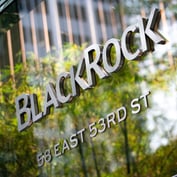What You Need to Know
- Genworth entered Australia’s mortgage insurance market in 1997, paying about $43 million to get in.
- The firm has been raising cash by selling some of its operations.
- The new deal could generate about $379 million in total proceeds.
Genworth Financial Inc. is preparing to hand off mortgage insurance operations in Australia that the company has owned since 1997.
The Richmond, Virginia-based company said Sunday that two subsidiaries have agreed to sell their 52% stake in Genworth Mortgage Insurance Australia Ltd. to institutional investors through an underwritten sale.
The names of the buyers were not disclosed.
The deal involves about 214.3 million shares of Genworth Australia. The price will be the equivalent of about $1.77 in U.S. dollars, giving the transaction a total value of about $379 million.
Genworth (GNW) said it expects to pay $247 million of the proceeds to an arm of AXA S.A., in connection with a July 2020 settlement related to two companies AXA acquired from Genworth in 2015. Genworth expects to keep about $123 million in proceeds.
The Genworth subsidiaries and the buyer will settle the sale March 3 Genworth said.
The History
Genworth has its roots in the insurance operations of General Electric Co.
It was once one of the biggest issuers of life insurance, annuities and long-term care insurance in the United States, and it was a major issuer of mortgage insurance in the United States and other countries.
GE Capital, a GE subsidiary, acquired the Housing Loans Insurance Corp., Australia’s government-owned mortgage insurer, from the Australian government in 1997. GE Capital paid Australia’s federal government $8 million in Australian dollars (US$3.2 million) in cash for the unit, along with a promise to inject the equivalent of about $40 million in U.S dollars in capital.
GE turned Genworth into a separate company in 2004.









 March 01, 2021 at 08:54 AM
March 01, 2021 at 08:54 AM











